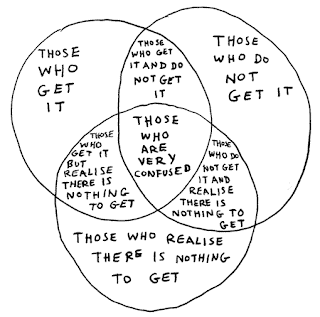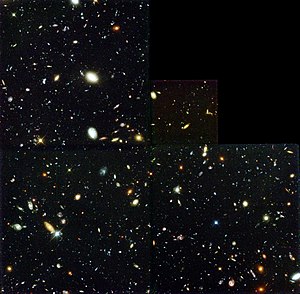http://www.bbc.co.uk/news/science-environment-12911806
http://www.physicsclassroom.com/Class/circles/U6L3c.cfm
Thursday, March 31, 2011
Wednesday, March 30, 2011
Tuesday, March 29, 2011
The Moon
Use the pictures given in class and and locate the following:
- each of the Apollo missions
- the tallest volcano on the moon
- the location of the LCROSS mission
- five details, including the landing, for Apollo 13
Take a look at the timeline Research one mission that is not an Apollo landing.
Answer the question: why do we keep sending missions out to a satellite with no atmosphere?
Tuesday, March 22, 2011
Sign up for Wiggio, please
Wiggio group
Please your email and cell phone in the options. Thank you. This information will be deleted at the end of the class.
Please your email and cell phone in the options. Thank you. This information will be deleted at the end of the class.
Astronomy Views at Different Latitudes
Take a look at these three sky maps. One is for a viewer in the north hemisphere, one is for a viewer in the south hemisphere, and one is for a viewer at the equator of our planet. List 5 commonalities, and 5 differences among those. Please print out one copy of the north latitutde skymap for use on Wednesday
Friday, March 18, 2011
Science and culture in the lives of astronomers.
You are going to explore the lives of some famous astronomers. First, check the book. Then, confirm it with a web reference, and find a picture. Finally, create a presentation of some type and email the link or the file at marciarpowell@gmail.com
The astronomers include
The astronomers include
- Aristotle
- Galileo
- Hipparchus
- Eratosthenes
- Tycho Brahe
- Pope Gregory
- Newton
- Ptolemy
- Einstein
- Hawking
Wednesday, March 16, 2011
Science, Religion, and Pseudoscience

Chunk the reading found at http://www.stephenjaygould.org/library/gould_noma.html into pieces...so everyone at your table is reading 4 to 5 paragraphs. When you get done, use a whiteboard to discuss the following questions:
a) what is science?
b) what is religion?
c) what is the theory of non-overlapping magisterium?
d) what would we call the overlap of science and religion?
e) which of the three ideas (science, pseudoscience, religion) were shown by the first astronomers?
f) can atheism be a religion?
Tuesday, March 15, 2011
Thursday, March 10, 2011
Are We Alone? An Individual Reflectionions
Your turn: Use the resources above to support your position on being PRO or AGAINST the possibility of alien life. You must include at least 5 pieces of evidence in your arguments.
Paragraphs 1-2: Your position, and your Evidence.
Paragraph 3-4: Implications for Human Beings
If you choose PRO on the possibility of alien life, you are telling me that you believe life exists outside of your own planet. Answer these questions, in paragraphs 3 and 4?
- Would the governments tell us if there were aliens? Why or why not? Is this a problem for science?
- Should we be sending out signals, like those of the Voyager, to advertise our existence?
- Given the constraints of the Drake equation, how likely is it we will here another civilization's signal?
- Since space is dangerous, how likely is it that aliens will be traveling long distances?
- How do you define 'life' or 'aliens'
If you choose CON on the possibility of alien life, you are telling me that you do not believe life exists outside of your own planet. Answer these questions, in paragraphs 3 and 4?
- Are there other benefits to SETI than finding aliens, or should the program be shut down?
- Why do so many people claim to have seen UFOs? Do you buy the lenticular cloud argument? What about the Foo Fighters?
- Since no other aliens have ever been announced, is the Drake equation even science? Or is it just opinion packaged as science?
- If there are no aliens, why is the universe so darn big??
- How do you define 'life' or 'aliens'?
Poster on Science vs. Religion
Today, you (individually or with ONE other partner) will make a poster that contrasts 2 religious beliefs and a science belief about the beginning of the world. As we have said all semester, science and religion mixing can make the questions we ask more and more unclear. I am not asking you to choose which is "right" and which is "wrong" here, I am simply asking you to contrast the ideas using two of the passages below. If you use the picture at the right, pay careful attention to the timeline.
Universe SCIENCE data: http://www.universeadventure.org
http://www.universetoday.com
Universe SCIENCE data: http://www.universeadventure.org
http://www.universetoday.com
http://www.pbs.org/wgbh/nova/origins/univ-flash.html
Universe RELIGION data:
http://www.gly.uga.edu/railsback/CS/CSIndex.html
http://www.historyworld.net/wrldhis/PlainTextHistories.asp?historyid=ab83
http://www.biblegateway.com/passage/?search=John+1&version=NIV
http://www.biblegateway.com/passage/?search=Genesis+2&version=NIV
http://www.biblegateway.com/passage/?search=Genesis+1&version=NIV
When you are done, on the back of the poster, please explain to me how well you believe the science and religion shown in these examples mesh?? Give three details to support your viewpoint.
Grading Rubric
Student includes at least 5 details about the Big Bang (1-5)
Student compares these details to a religious story (1-5)
Student compares these details to another religious story (1-5)
Student poster is effective, using an attractive visual layout (1-5)
Student paragraph of support is included, with three supporting pieces of evidence (1-9)
Universe RELIGION data:
http://www.gly.uga.edu/railsback/CS/CSIndex.html
http://www.historyworld.net/wrldhis/PlainTextHistories.asp?historyid=ab83
http://www.biblegateway.com/passage/?search=John+1&version=NIV
http://www.biblegateway.com/passage/?search=Genesis+2&version=NIV
http://www.biblegateway.com/passage/?search=Genesis+1&version=NIV
When you are done, on the back of the poster, please explain to me how well you believe the science and religion shown in these examples mesh?? Give three details to support your viewpoint.
Grading Rubric
Student includes at least 5 details about the Big Bang (1-5)
Student compares these details to a religious story (1-5)
Student compares these details to another religious story (1-5)
Student poster is effective, using an attractive visual layout (1-5)
Student paragraph of support is included, with three supporting pieces of evidence (1-9)
Hubble Deep Field
Go to the Hubble Galaxy Hunt activity. Take the time you need to explore, but when you are done, I need you to write a 3-4 paragraph reflection on your impressions, including data, statistics, and size factors.


Tuesday, March 8, 2011
Special Relativity
The background
Tutorial 1
Tutorial 2
Tutorial 3
Tutorial 4
Tutorial 5
Tutorial 6
Tutorial 7
GO through each tutorial and then summarize in one or two paragraphs.
Each of these tutorials focuses on a specific concept. When you get done, you should be able to explain
*the twin paradox
*simultaneity
*length dilation
*time dilation
*special relativity
Hand in the seven paragraphs and the definitions INDIVIDUALLY when you are finished.
Tutorial 1
Tutorial 2
Tutorial 3
Tutorial 4
Tutorial 5
Tutorial 6
Tutorial 7
GO through each tutorial and then summarize in one or two paragraphs.
Each of these tutorials focuses on a specific concept. When you get done, you should be able to explain
*the twin paradox
*simultaneity
*length dilation
*time dilation
*special relativity
Hand in the seven paragraphs and the definitions INDIVIDUALLY when you are finished.
Wednesday, March 2, 2011
Lab: Exploring the Universe using SDSS
Tuesday, March 1, 2011
Classify Galaxies

http://www.galaxyzoo.org/classify
Try to classify 50 galaxies, breaking them into 3 categories: Spiral, Circular, and WEIRD (irregular)
What did we notice about the galaxies we classified in the work time provided?
Now, for some guided notes
How are galaxies classified?
What types are most common?
Who is Hubble and why does he matter?
Why do galaxies tell us?
How do galaxies form?
Subscribe to:
Comments (Atom)


